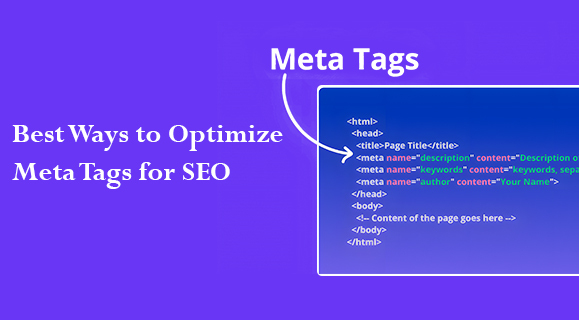When it comes to SEO, meta tags might seem like small potatoes, but don’t let their size fool you. These little snippets of code pack a serious punch when it comes to driving traffic and improving search rankings. Whether you’re just dipping your toes into the SEO pool or you’re a seasoned pro looking for a refresher, optimizing your meta tags can make a world of difference.
So, what exactly are meta tags, and why should you care? Let’s dive in.
What Are Meta Tags, Anyway?
Meta tags are bits of text embedded in your site’s HTML code that tell search engines what your web page is all about. Think of them as your website’s elevator pitch. While most meta tags aren’t visible to visitors, they play a critical role behind the scenes.
Some of the most important meta tags include:
- Meta Title (Title Tag): The clickable headline in search results.
- Meta Description: The brief snippet that describes your page in search results.
- Meta Robots Tag: Tells search engines which pages to crawl or not.
- Viewport Meta Tag: Ensures your site is mobile-friendly.
Crafting Killer Meta Titles
First impressions matter, and your meta title is the first thing users and search engines see. It’s gotta pop!
Tips to optimize your title tags:
- Keep it under 60 characters (so it doesn’t get cut off).
- Include primary keywords at the beginning.
- Make it unique for every page.
- Add a touch of branding if space allows.
Example: Instead of “Home – John’s Plumbing Service,” go with “Reliable Plumbing Services in NYC | John’s Plumbing”
Remember, you’re writing for humans and bots. Blend clarity with curiosity.
Writing Meta Descriptions That Convert
Alright, let’s talk about meta descriptions. While they don’t directly affect rankings, they sure as heck influence click-through rates (CTR). Think of them like the trailer for your content.
Best practices:
- Stick to 150-160 characters.
- Use a call-to-action (CTA): Learn more, Discover how, Get started.
- Sprinkle in your target keyword(s) naturally.
- Make it compelling and relevant to the page content.
Quick tip: Don’t bait-and-switch. If your meta says “Free SEO Tips,” make sure the content delivers.
Don’t Sleep on Meta Robots Tags
While they might not be sexy, meta robots tags are crucial for controlling how search engines interact with your site.
Common values include:
- index/noindex: Should this page appear in search results?
- follow/nofollow: Should search engines follow the links on this page?
Use these wisely to:
- Keep duplicate or thin content out of search results
- Prevent private or sensitive pages from being indexed
Pro move: Pair robots tags with your robots.txt file for max control.
Optimize for Mobile with the Viewport Tag
More people are browsing on phones than ever before. If your meta tags don’t support mobile, you’re leaving traffic (and conversions) on the table.
Add this line to your site’s head tag:
<meta name=”viewport” content=”width=device-width, initial-scale=1.0″>
This helps your site scale beautifully across all devices, improving UX and lowering bounce rates—both big wins for SEO.
Bonus Tips: Go Beyond the Basics
If you’re feeling a little extra (and why not?), here are some bonus meta tag optimization hacks:
- Use Schema Markup: Enhance your meta with rich snippets like ratings, prices, and FAQs.
- Leverage Open Graph (OG) Tags: Perfect for social sharing previews.
- Refresh Old Meta Tags: SEO isn’t a set-it-and-forget-it game. Regularly audit and update your meta tags.
- Test Variations: A/B test different titles and descriptions to find what drives the most clicks.
FAQs About Meta Tags for SEO
Q1: Do meta tags still matter for SEO in 2025? Absolutely! While Google’s algorithm has evolved, meta tags still influence how your pages appear in search results and affect click-through rates.
Q2: How often should I update my meta tags? It depends on your content strategy, but a good rule of thumb is to audit and refresh your meta tags every 3–6 months or after significant content updates.
Q3: Can I use the same meta tags on multiple pages? Nope. Duplicate meta tags can confuse search engines and hurt your rankings. Each page deserves its own unique title and description.
Q4: Do meta keywords still work? Short answer: Not really. Google doesn’t use the meta keywords tag anymore, so focus on title and description optimization instead.
Q5: Are meta tags important for social media too? Yes! Using Open Graph (OG) and Twitter Card tags ensures your content looks great when shared on platforms like Facebook, Twitter, and LinkedIn.
Final Thoughts
Meta tag optimization might seem like coding rocket science at first glance, but it doesn’t have to fry your brain. In the vast ecosystem of digital marketing and web development, these meta elements are the unsung heroes in your SEO toolbox. With a bit of creativity, a pinch of keyword magic, and some good ol’ human insight, you can craft meta tags that charm both Google’s algorithms and your human visitors.
Don’t underestimate these tiny titans of SEO. They’re the metadata microchips that keep your search visibility circuitry humming. Get your meta game on point, and you’ll be turning heads (and clicks) faster than a high-speed CDN.

Leave a Reply